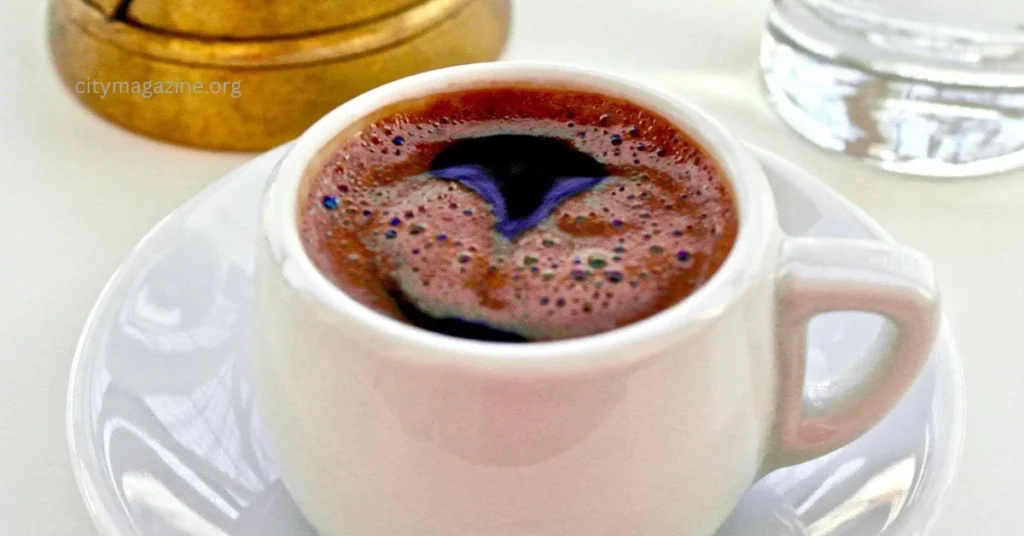One thing that makes a trip to Greece memorable is its cuisine. Besides delicious food, Greece boasts several famous drinks like ouzo, wine, and coffee. Greek coffee is strong, grainy, and thick, with a taste that lingers. The way it is prepared extracts more nutrients from the coffee beans, offering added health benefits. Let’s see what makes Greek coffee stand out from other coffee types.
How is Greek coffee made?
While original and exotic, Greek coffee is not unique to Greece. In surrounding countries, coffee is made identically. Examples are Turkish coffee, Cypriot coffee, Bosnian coffee, Serbian coffee, and Armenian coffee. The boiling method developed many centuries ago in Yemen before the filtration method was introduced.
Greek coffee is made by boiling ground coffee and water in a tall, narrow pot called a Briki. If you prefer sweet coffee, tell the waiter or waitress because the sugar is added during the boiling process.
Once the Greek coffee is ready, it is served in a demitasse cup – the same one used for espresso. But you can’t drink it as soon as it is served! Since the grounds are still floating around in the brew, you’ll have to wait a little to let them settle. You can then drink it with little sips, careful not to upset the coffee grounds on the bottom of your cup.
Why is Greek coffee more than a drink?
Whether you are in bustling Athens or on a slow-paced island like Paxos, the Greeks like to take their time for a coffee break. Sometimes, they go on for as long as 90 minutes! This gives them ample time to catch up, gossip, fix the world’s problems, and let the grounds settle. Greek coffee drinks at home, cafes, or kafeneios (Greek coffee houses for men).
Health benefits of Greek coffee
A recent study published in Vascular Medicine explored the health benefits of Greek coffee. A survey of the island of Ikaria found that elderly residents who drank Greek coffee at least once daily displayed better overall cardiovascular health.
Coffee is generally considered good for the heart thanks to its high polyphenols and protective antioxidants. Because of the way Greek coffee is made, it delivers more concentrated antioxidants per cup than regular (filter) coffee. Also, it has less caffeine than in, say, an American coffee. The chlorogenic acid and the lipid-soluble substances help protect the arteries and lower the risk of diabetes.
In summary, drinking Greek coffee is one of the best ways of integrating into Greek society, and the health benefits make it a better choice than your typical americano or espresso.
How is Greek coffee different from other coffees?
People sometimes wonder how Greek coffee is different from espresso. Well, it is quite dissimilar. Whereas espresso is made with pressurized water that runs through finely-ground coffee beans, it is caused by boiling coffee beans and water in the same pot. The water pressure (up to 15 bar) used to make espresso creates an intriguing and tasty froth called crema, which consists of
Similarly to espresso, filter coffee –sometimes American coffee – is made from finely ground coffee beans placed in a paper filter. Then, hot water drips over the grounds, which comes out the bottom as drinkable coffee.
The French press is a coffee maker shaped like a glass pot. Similarly, the ground beans and the water are mixed. The difference is that in the French press, you use a filter to push the grounds down to the bottom of the pot. Whereas the whole mixture pours into a cup in the case of the settings from a French press remaining at the bottom of the pool, trapped under the filter.
In Colombia, Panama, and Costa Rica, coffee is made with a cloth filter. Sometimes likened to a sock, this filter is filled with ground, and hot water is poured over it. Here, the trick is to find the correct settings. The coffee will be watery and lack flavor if they are too coarse. Water won’t seep through the ground beans and the filter if they are too fine.
And then there is the surprising product of egg coffee. In Scandinavia, egg whites are mixed into the coffee grounds to help hot water flow through the beans. They say this creates a non-bitter, light, and smooth blend. In Vietnam, coffee is made by whipping an egg with sugar and coffee. The result is a taste that is similar to tiramisu.




